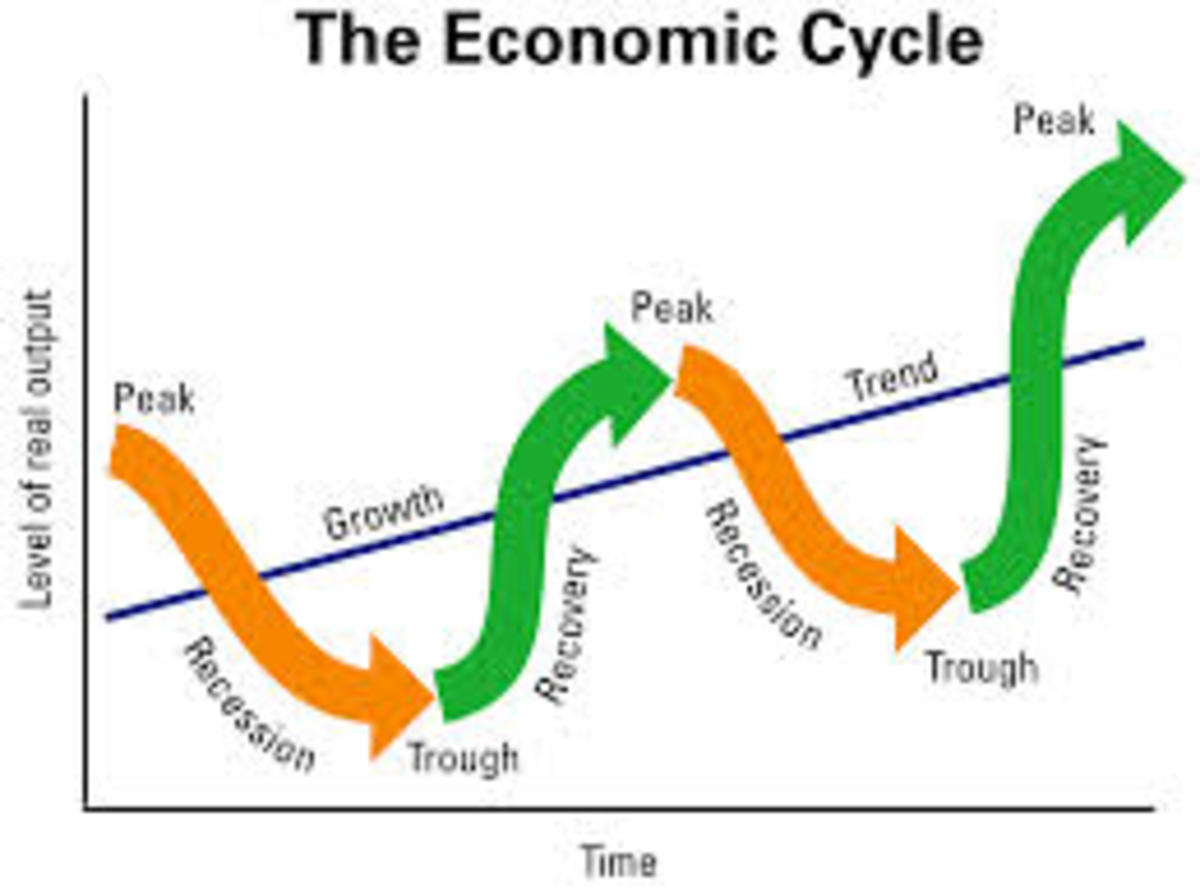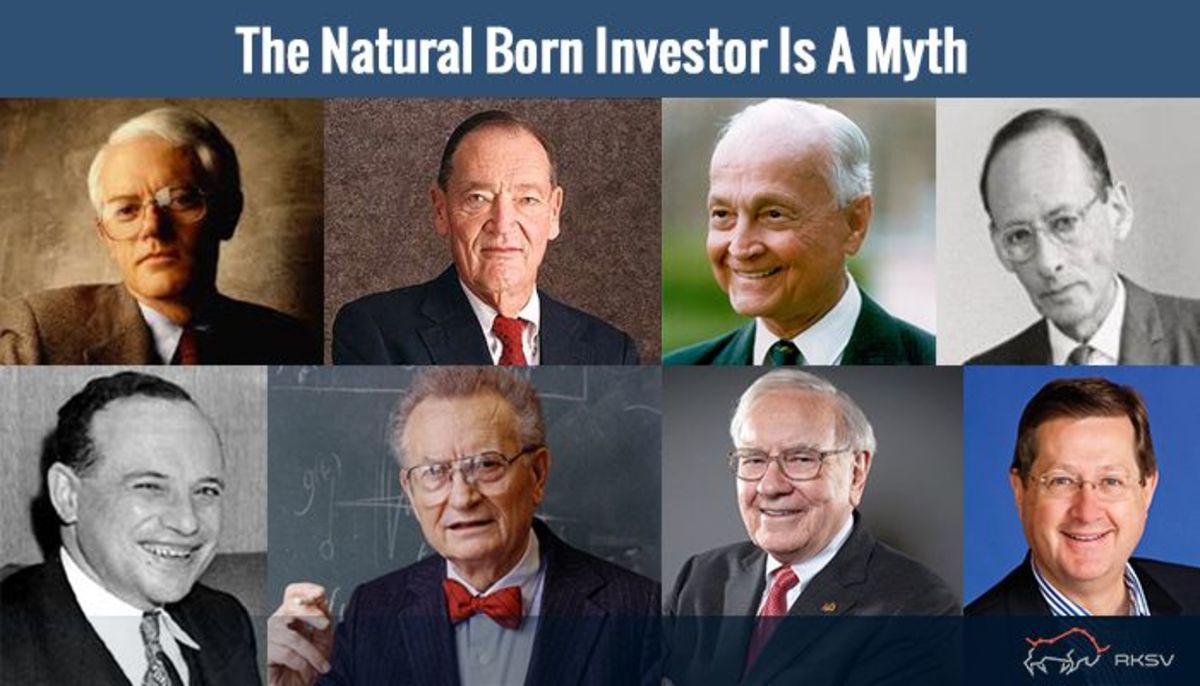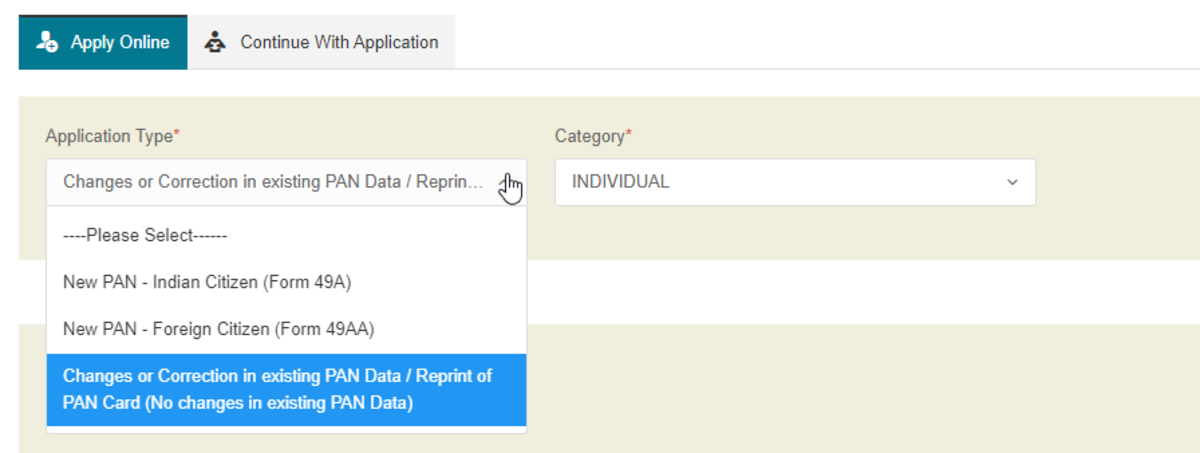2 Things That Go Down in October - Halloween & Your 401k Stocks

If history is any indication of future stock market directions in October, your fourth quarter 401K statement might just frighten you more than all the little ghosts and goblins that come a creepin' n crawlin' and knockin' on your door with bags in hand to collect their sugar coated treats this year. As we all know, the October tradition of Halloween will indeed be celebrated by all the young children and adults alike who wish to participate in this hideously ghoulish annual event, but the direction of the stock market this fall may not lead to such a joyous hats n' horns style celebration. History dictates the fall season may be somewhat shaky or even down right HORRIFYING for the major stock market indices such as the DJIA , NASDAQ & S&P.
Although October may not actually be the worst performing month on record for stocks, the psychology of market participants during this period seems to be at its worst, which usually means individuals and institutional investors are very cautious and may be reluctant to lay money on the table in exchange for stock certificates, hence the possibility exists, as it always does around this time of year, for a moderate to substantial correction or sustained decline in the coming months. But then again, just when you think you've got it all figured out, you usually don't, and of course the anticipated end result of all your dedicated midnight oil burning research might not materialize, leaving you with a lantern full of ashes and another misdiagnosed prognostication. Will this be the case once again this year?
So if we do indeed experience stock market turbulence this fall, what can we do to prepare and possibly cushion the impact? What can be done to ensure your bag of stock certificate treats and crunchy candy bits survive intact as we venture toward this ever so scary season? protecting your bag of Halloween treats is pretty simple, but your 401K? Maybe not so easily shielded from the helplessly spooked, dark selling forces of the street. The first proactive step toward protecting your financial sweets is to attain higher knowledge including a more complete understanding of what your 401K plan actually is and what tricks are contained therein. Some of you may already be well aware of the diverse and complex financial instruments nestled comfortably within your company sponsored retirement plan, but if you're not, or possibly a little confused about what a 401K plan actually is, hopefully this entry will help to shed some additional light on this DARK, GLOOMY, & MYSTERIOUS subject. Like anything else, understanding the basic concept is step one toward making wise decisions and protecting assets that you've worked so hard to acquire. The content of this article will probably not miraculously transform you into an expert on tax deferred retirement savings vehicles, but hopefully after we're done, you'll be just a little more knowledgeable on the subject than you were prior to reading.
- But remember, Always consult your Financial Advisor, Accountant or other persons whom you rely on for assistance before making any decisions or adjustments in your 401K or other holdings in your portfolio.
In this article I hope to accomplish the following two goals:
- Provide a basic understanding of what a 401K plan is.
- Define the various investment vehicles which are typically found in a 401K plan.
WHAT IS A 401K PLAN?
A 401K is an employer sponsored savings plan into which employees can voluntarily make periodic and systematic contributions that are automatically deducted and transferred from their weekly or bi-weekly paychecks. In some cases your employer may match your contribution dollar for dollar or apply any other predetermined percentage. Before the matching contributions are yours to keep, a certain "Vesting" period must be achieved. 5 years of employment with the same company seems to be the average vesting time frame. Your employer does not manage the actual 401K plan, this task is performed by a neutral third party or "Trustee". Examples of larger high profile firms or institutions that manage billions in 401K assets would be Fidelity or JP Morgan Chase etc. In exchange for a management fee, they perform the day to day operations and administrative duties to ensure the plan functions smoothly. In summary, a very basic definition of a 401K plan would be the following.
"A tax deferred vehicle that provides a diverse menu of mutual fund investment options where you as employee, can make regular voluntary contributions until retirement. You give authorization to your employer to make automatic withdrawals of a certain pre-determined percentage of "Before" or "After" tax monies from each paycheck, the monies are thereafter transferred into the 401K plan".
The basic 401K concept is pretty fundamental and straight forward, the investment vehicles contained within the plan is where it may get a little complex.
WHAT INVESMENT VEHICLES ARE TYPICALLY FOUND IN A 401K PLAN?
One note of importance is the following fact. A 401K plan is not FDIC insured, which means there is a certain degree of risk depending upon investment allocations which are made by the employee. All 401K plans usually offer the entire range of mutual funds, from very aggressive high risk options to very conservative low risk vehicles, and just about everything in between. Most participants are well aware of this fact however, some individuals or students may be a little confused in regard to what they are actually depositing hard earned money in to. The following is a general description of typical investment vehicles or mutual funds that are included in the average 401K plan.
Stock funds
- Large Cap - On average, a market cap of 10 Billion or higher. Large Blue Chip Companies with a proven track record of consistent earnings ( Example - Microsoft, IBM, Proctor & Gamble ).
- Mid Cap - On average, a market cap of between 1 - 9 Billion. Medium sized companies which do not necessarily have a history of consistent earnings however, have more growth potential verses Big Cap Stocks.
- Small Cap - On average, a market cap of 1 Billion or less. Usually a company in financial difficulty or a newly established company which may have most of its growth ahead of it.
- Emerging Market - An industry or sector which is 'hot' so to speak and shows significant future growth potential.
- International - Self explanatory, any company headquartered outside the U.S.
- Stock & Bond - A mix of stocks & bonds.
- Index - A fund that invests mainly in stocks which are included in a certain index such as the S&P 500.
- Stable Fund - Invests in the most conservative financial instruments, although not a traditional savings account it's the safest and least volatile with minimal risk to principal ( Almost every 401K plan includes at least one of these funds ).


Within the typical 401K plan you have several different investment options from which to choose, and prior to doing so, it would be prudent to seek consultation from your resident financial expert regarding asset allocations which may be suitable to your unique situation and future financial goals. Ask that person if he/she thinks it would be a wise financial move to transfer part or all 401K monies into a safer, non-volatile "Stable" fund prior to anticipated market dips, or, if you should just weather the storm and continue to dollar cost at a lower price if indeed the market takes a serious tumble. One major consideration when making a decision of this nature and magnitude is how close to retirement you are. If it's just around the corner, perhaps protecting your principal would be top priority and the prudent decision, but if time is on your side, then maybe weathering a potential storm by remaining fully vested in equities might be the way to go. If you have decades before retirement, a continuous dollar cost averaging program may work to your advantage in the long run which will enable you to buy more shares when the market does go down, thereby lowering your overall cost basis. But once again, check with your financial person for consultation and tailored advice with regard to which path you should take, or strategy you should employ.
But always remember, there is usually at least one "STABLE" fund within all 401K plans. This fund is one of your only genuine "buffers" between a substantial stock market decline, and preserving your hard earned 401K money. The stable fund does not invest in stocks but rather very conservative, low risk money market instruments and government backed securities such as bonds. So when the stock market does indeed go down or "correct" as the pros say, this type of fund loses very little if any value.
Check with your financial person for more information and strategies on how to 'Octoberproof' your 401K plan. Halloween is already "scary" enough.
Photo Links:

NOTE to Visitors - The "Links" listed below within the "Discover More Hubs" segment are randomly selected and placed by HubPages, not the author of this specific entry - Alternative Prime does not necessarily recommend or endorse the articles nor guarantee quality of the content contained therein -
|
|---|






